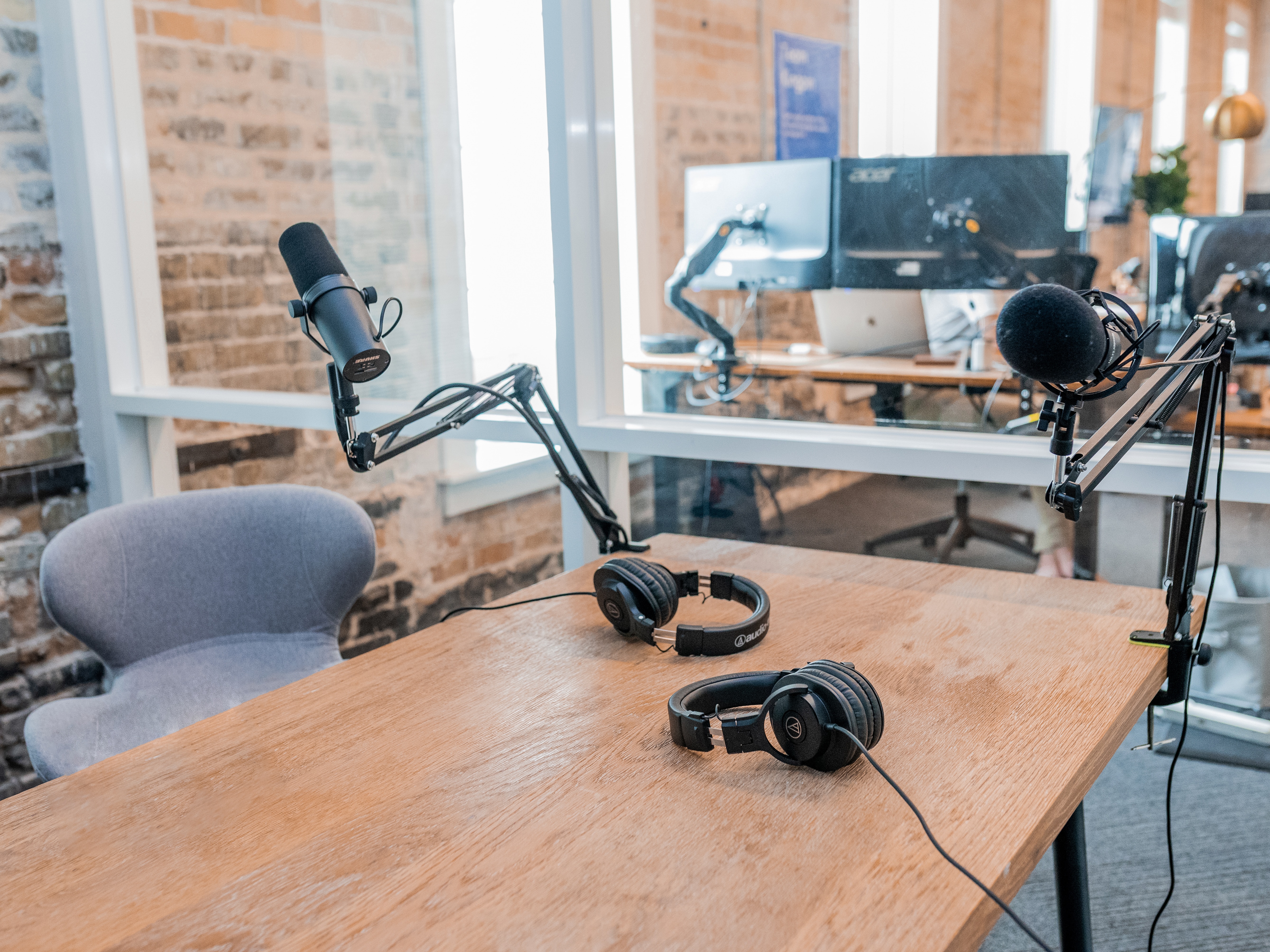We already talked about Deen's blog here about how podcasting can help leverage companies' marketing strategies.
But do you know how to create a podcast, from the planning stage to editing and publishing? Check out a simple walkthrough to get your hands dirty and successful:
1. THINK ABOUT THE THEME
The topic needs to be related to two things: your niche market and your persona's preferences .
In addition, the podcast theme needs to be something that you really master very well - because it will help you to be more resourceful when recording, giving the feeling that you are a person who really is authority on the subject.
2. THINK ABOUT PODCAST FORMAT
After the theme, write down the answers to the following questions about the podcast format:
- What will be the duration of the program?
- What will be the frequency of production and publication?
- Will it be in individual format or will you have special guests?
- What types of guests will they have?
- What topics will I talk about in the theme of the podcast?
- What can I say that sets me apart from the competition podcast?
3. SET THE NAME OF THE PODCAST.
The name of your podcast needs to be associated with your company brand and, at the same time, has to do with the theme of the podcast itself. This makes it even easier for you to be found on platforms and search engines separated by theme.
4. DEFINE THE TEAM AND GUESTS
Make monthly (or even bi-monthly and quarterly) editorial planning by choosing which episodes will be special - that is, with special guests or, for example, answering listeners ' questions . This is important for you to prepare in advance.
However, remember that you, as the presenter (or the person you have chosen for this role), are responsible for conducting the entire program.
5. CREATE A SCRIPT
The script is what will guide you and the crew when shooting and editing and should be used in every episode.
Here's an example of how your script should be structured:
- Program start sticker;
- Presentation of the speakers of the episode;
- Presentation of the theme of the episode;
- Initial warnings;
- Call to Action (CTA) - inviting to share the episode, download some material on the site, etc .;
- Discussion on the subject of the episode (the conversation should be as natural as possible);
- Closure;
- Final sticker.
At the time of editing, be sure to split the conversation between blocks with quick transition vignettes.
6. HAVE THE NECESSARY EQUIPMENT
Start small. No need to invest in anything expensive. To record a good podcast, you need:
- Computer with Internet access;
- Headset with a quality microphone;
- A quiet place for recording.
7. WARM UP THE VOICE
There are many Youtube videos teaching vocal warm-up exercises that you should do minutes before recording. Believe me, it makes all the difference in the quality of your voice, including the health of your vocal folds.
8. RECORD AND EDIT THE PODCAST
As we said, choose a quiet place to record the podcast. If the guest of the episode is in another location, you can record over the internet (via Skype, for example), or phone.
At the time of editing, our suggestion is that you use Audacity , a voice editing software that is very simple and intuitive - there is even an editing guide to guide you.
Always save a copy of the original file and edit the program in an extra copy.
The first step is to make sure that you have saved a copy of the audio files from the original recording. In the end, export the project to mp3 format.
9. POST IN THE RIGHT PLACES
Podcasting can be done in two places: aggregators and streaming platforms.
As for aggregators, to publish simply choose an application (such as Sound Cloud ) to host and purchase an RSS feed for the app to read the file.
And as for streaming platforms, Spotify is an example of a place that has been receiving a lot of podcasts. In this case, your podcast must already be hosted on an app. So just wait for the streaming deadline for the program to be live.
10. KNOW HOW TO SPREAD YOUR PODCAST AND MEASURE THE RESULTS.
Get the most out of your podcast to your customers and potential customers . Social networks and the email list are good tools for that too.
Be sure to measure the results according to the data provided by the aggregators. Also watch out for listeners' comments so you know which episodes were most successful in continuing to invest.
